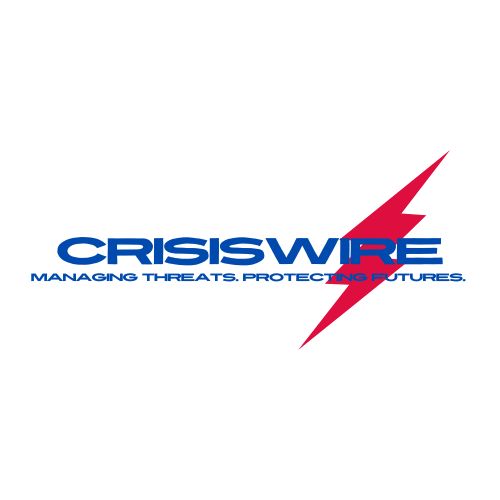The Access Control Blueprint for Hawaiʻi Schools, Colleges, and Corporations
- CrisisWire

- Oct 4, 2025
- 3 min read
Why Access Control in Hawaiʻi Is Broken
In 2025, the fastest-growing threat to schools, colleges, and businesses in Hawaiʻi isn’t what’s outside the walls — it’s what’s already inside. Access control failures remain the most overlooked vulnerability. Doors propped open. Tailgating employees. Unvetted visitors. Badge systems that haven’t been audited in years.
As someone who has spent decades in law enforcement (LAPD), federal protection (WPS/WPPS contracts in the Middle East), and campus safety (Director of Campus Safety, Chaminade University), I’ve seen firsthand how one unsecured door can undo millions of dollars in cameras and cybersecurity.
This article provides a blueprint for Hawaiʻi institutions — practical steps to lock down campuses, corporate towers, and community facilities before they become the next soft target.

2. Deep Analysis: Why Access Control Fails
Common Failures in Hawaiʻi Institutions
Tailgating & piggybacking — One badge swipe opens the door for two people.
Visitor management gaps — Contractors, delivery staff, or “friends of staff” bypass protocols.
Badge misuse — Former employees or students retain access credentials.
Cyber-physical convergence — Hacked badge systems or disabled panels.
Culture of convenience — Staff prioritize ease of access over security enforcement.
The Real Risk
Unlike cybersecurity breaches, access control failures are tangible and immediate. When a door is unsecured, an intruder is seconds away from vulnerable classrooms, executive offices, or critical infrastructure.
3. Case Studies: When Doors Fail
Campus Incident (Mainland, 2022): A propped-open dormitory door allowed an armed intruder to enter undetected — the university later faced lawsuits for failing to enforce door checks.
Corporate Office Breach (Hawaiʻi, 2023): Badge misuse by a former employee led to data theft and vandalism. The company discovered their system hadn’t been reviewed in three years.
Hospital Visitor Loophole (National, 2021): A visitor used insider knowledge of weak ID checks to access restricted floors, resulting in patient harm and reputational damage.
4. The Access Control Blueprint
As a DHS-certified Protecting Critical Infrastructure specialist and FEMA ICS/NIMS-trained leader, I recommend Hawaiʻi institutions adopt the following blueprint:
Door-by-Door Audit
Inspect every door, gate, and panel quarterly.
Log exceptions (doors that don’t close properly, badge readers that fail).
Zero Tailgating Policy
Educate staff: one badge = one person.
Random checks and disciplinary consequences for violators.
Visitor Protocols
Require photo ID, escort, and log for every visitor.
No exceptions for “short visits” or “known contractors.”
Cyber Integration
Regularly patch and test badge systems.
Integrate cybersecurity with physical access logs.
Leadership Oversight
Boards, presidents, and CEOs should review access logs quarterly.
Access control is a leadership liability issue, not just facilities management.
5. Leadership Responsibility & Liability
In my career — from LAPD tactical operations to Worldwide Protective Services contracts for the State Department and DoD — I’ve learned one rule: leaders are accountable for preventable failures.
In Hawaiʻi, if a breach occurs through an unsecured door or unchecked visitor, lawsuits will target the school president, corporate CEO, or board. Ignorance is no defense. Documented access control policies are your best protection.
6. Resource Backlinks
CrisisWire Blog Hub: CrisisWire Blog
Related: Locked Down: Why Access Control Is the Missing Piece
Call to Action
📘 If you are a school administrator, university leader, or corporate executive in Hawaiʻi, now is the time to act. CrisisWire offers door-by-door audits, insider threat assessments, and access control training to lock down your institution.
📧 Contact: crisiswire@proton.me
#CrisisWire #AccessControl #HawaiiSecurity #CampusSafety #CorporateSecurity #VisitorManagement #ThreatAssessment #SchoolSafety #CISA #FEMA
FAQ
Q1: Why is access control more critical than cameras or alarms? Because once an intruder bypasses the door, cameras only record the incident — they don’t prevent it.
Q2: How often should Hawaiʻi institutions audit their access systems? Quarterly at minimum, with leadership review of logs.
Q3: What’s the #1 mistake schools and corporations make in Hawaiʻi? Relying on convenience — propped doors, informal visitor access, and unused badge audits.
Q4: Can small businesses benefit from access control audits? Yes. Even SMBs with one office face theft, insider risk, and liability from weak access protocols.





Comments